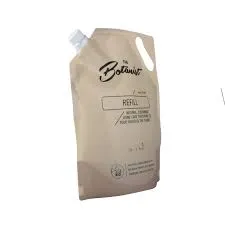- Afrikaans
- Albanian
- Amharic
- Arabic
- Armenian
- Azerbaijani
- Basque
- Belarusian
- Bengali
- Bosnian
- Bulgarian
- Catalan
- Cebuano
- chinese_simplified
- chinese_traditional
- Corsican
- Croatian
- Czech
- Danish
- Dutch
- English
- Esperanto
- Estonian
- Finnish
- French
- Frisian
- Galician
- Georgian
- German
- Greek
- Gujarati
- haitian_creole
- hausa
- hawaiian
- Hebrew
- Hindi
- Miao
- Hungarian
- Icelandic
- igbo
- Indonesian
- irish
- Italian
- Japanese
- Javanese
- Kannada
- kazakh
- Khmer
- Rwandese
- Korean
- Kurdish
- Kyrgyz
- Lao
- Latin
- Latvian
- Lithuanian
- Luxembourgish
- Macedonian
- Malgashi
- Malay
- Malayalam
- Maltese
- Maori
- Marathi
- Mongolian
- Myanmar
- Nepali
- Norwegian
- Norwegian
- Occitan
- Pashto
- Persian
- Polish
- Portuguese
- Punjabi
- Romanian
- Russian
- Samoan
- scottish-gaelic
- Serbian
- Sesotho
- Shona
- Sindhi
- Sinhala
- Slovak
- Slovenian
- Somali
- Spanish
- Sundanese
- Swahili
- Swedish
- Tagalog
- Tajik
- Tamil
- Tatar
- Telugu
- Thai
- Turkish
- Turkmen
- Ukrainian
- Urdu
- Uighur
- Uzbek
- Vietnamese
- Welsh
- Bantu
- Yiddish
- Yoruba
- Zulu
compostable grocery bags
The Rise of Compostable Grocery Bags A Sustainable Solution for Our Planet
In our increasingly eco-conscious world, the movement toward sustainability has spurred innovation in everyday products, particularly in how we handle waste. One of the most notable advancements has been the emergence of compostable grocery bags. These eco-friendly alternatives to conventional plastic bags are designed with the environment in mind, offering a sustainable solution that significantly reduces our carbon footprint.
Traditionally, plastic grocery bags have posed a significant environmental challenge. Made from non-renewable petroleum products, these bags are not only a major contributor to ocean pollution but also take hundreds of years to decompose in landfills. As awareness of plastic pollution has grown, so too has the demand for more sustainable alternatives. Compostable grocery bags emerge as a viable solution, addressing both the convenience of carrying groceries and the pressing need for environmental protection.
Compostable bags are typically made from renewable materials such as corn starch, sugarcane, or other plant-based resources. These materials break down naturally through microbial activity in composting environments, yielding nutrient-rich compost for soil enhancement. Unlike traditional plastics, compostable bags can decompose within a matter of weeks to months, depending on environmental conditions. This characteristic not only minimizes the burden on landfills but also contributes positively to soil health when properly composted.
The advantages of compostable grocery bags extend beyond mere decomposition. In terms of carbon footprint, the production of plant-based materials for these bags can generate significantly fewer greenhouse gases compared to conventional plastic production. Furthermore, many compostable bags are designed to be lightweight and durable, ensuring they can handle everyday grocery needs while still being environmentally responsible.
compostable grocery bags

Another significant aspect of compostable grocery bags is their compatibility with municipal composting programs. Many cities and towns are now implementing organics recycling initiatives, encouraging residents to compost food scraps and biodegradable materials. Compostable bags can often be included in these programs, making it easier for consumers to dispose of their waste sustainably. However, it’s crucial for users to pay close attention to local guidelines, as some composting facilities have specific requirements regarding the types of materials they accept.
Nonetheless, despite their many benefits, compostable grocery bags are not without challenges. Their production costs can be higher than traditional plastic bags, which may deter some grocery retailers from adopting them. Additionally, the labeling of “compostable” can sometimes be misleading, as bags require specific conditions to decompose effectively. Consumers must be educated to ensure they understand the importance of proper disposal methods to maximize environmental benefits.
Moreover, while compostable bags are a step in the right direction, they should not be viewed as a panacea for plastic pollution. The best approach remains to reduce our overall consumption of single-use products, whether plastic or compostable. Encouraging the use of reusable bags is crucial in this fight against environmental degradation. By making conscious decisions to use reusable products, consumers can significantly lessen their environmental impact.
In conclusion, compostable grocery bags represent a promising advancement in the quest for sustainability. They offer a practical and eco-friendly alternative to traditional plastic bags, providing consumers with an option that aligns with a more environmentally responsible lifestyle. However, as we embrace these innovations, it is essential to maintain a holistic approach to consumption and waste management, focusing on reduction and reuse as fundamental principles in our collective journey toward a sustainable future.













